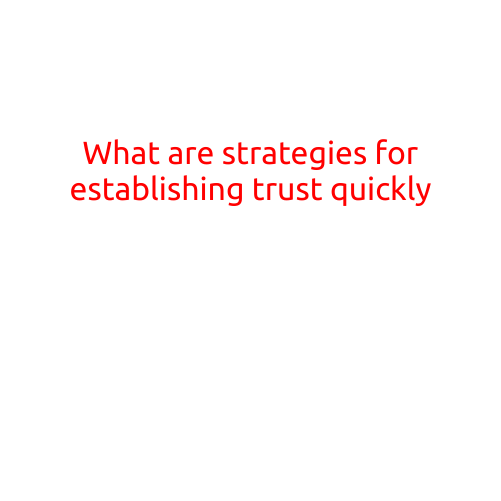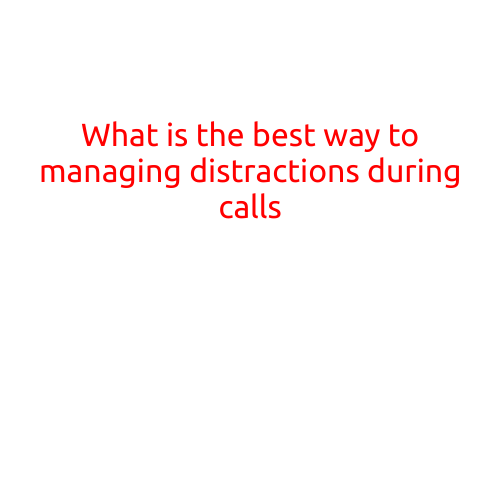
What are Strategies for Establishing Trust Quickly?
Establishing trust with others is a crucial aspect of building strong relationships, whether personal or professional. Trust is the foundation upon which healthy communication, effective collaboration, and successful partnerships are built. However, establishing trust quickly can be a challenging task, especially in today’s fast-paced and often impersonal world.
In this article, we’ll explore some effective strategies for establishing trust quickly, helping you to foster more meaningful connections and build strong relationships.
1. Be Transparent and Honest
Being transparent and honest is one of the most important strategies for establishing trust quickly. When you’re open and truthful about your intentions, actions, and motivations, you build credibility and demonstrate that you have nothing to hide. This can be as simple as being honest about your limitations or admitting when you’re unsure about something.
2. Follow Through on Commitments
Consistency is key when it comes to establishing trust. When you make a promise, it’s essential to follow through on it. This shows that you’re reliable, responsible, and committed to your word. Whether it’s keeping a meeting appointment or delivering on a promise made, following through on your commitments can go a long way in building trust.
3. Show Empathy and Understanding
Empathy and understanding are essential for building strong connections. When you take the time to listen actively and show that you care about others’ feelings and concerns, you create a space for trust to grow. This can be as simple as asking open-ended questions or expressing genuine interest in someone’s well-being.
4. Be Authentic and Vulnerable
Authenticity is crucial for building trust. When you’re genuine, vulnerable, and willing to share your own fears, doubts, and struggles, you create a sense of safety and openness. This can be scary, but it’s often necessary for building deep and meaningful connections.
5. Respect Boundaries
Respecting others’ boundaries is essential for maintaining healthy relationships. When you’re respectful of someone else’s limits, you demonstrate that you prioritize their comfort, safety, and well-being. This can be as simple as not pushing someone to share something they’re not ready to share or respecting their need for alone time.
6. Show Consistency and Reliability
Consistency and reliability are important aspects of establishing trust. When you’re reliable and consistent in your actions, habits, and behaviors, you demonstrate that you’re dependable and trustworthy. This can be as simple as showing up on time, following a routine, or consistently communicating.
7. Practice Active Listening
Active listening is a powerful tool for building trust. When you give someone your undivided attention, show that you’re engaged, and respond thoughtfully, you create a sense of understanding and connection. This can be as simple as maintaining eye contact, nodding to show you’re listening, or summarizing what someone has said.
8. Be Accountable and Take Responsibility
Taking responsibility for your actions and being accountable for your mistakes is essential for establishing trust. When you own up to your errors, apologize sincerely, and make amends when necessary, you demonstrate that you’re willing to grow and learn.
9. Show Appreciation and Gratitude
Showing appreciation and gratitude can go a long way in building trust. When you express genuine thanks and recognition for someone’s efforts, you create a sense of warmth and connection. This can be as simple as saying “thank you” or writing a heartfelt note.
10. Cultivate Trustworthiness Over Time
Trust is not something that can be established overnight. It’s a process that takes time, effort, and consistency. By consistently demonstrating your commitment to trustworthiness, you’ll find that trust begins to grow and deepen over time.
In conclusion, establishing trust quickly requires a combination of strategies that demonstrate your commitment to authenticity, reliability, and openness. By incorporating these strategies into your daily interactions, you’ll find that trust becomes a natural byproduct of your relationships. Remember that trust is a two-way street, and building trust is an ongoing process that requires effort and consistency.





